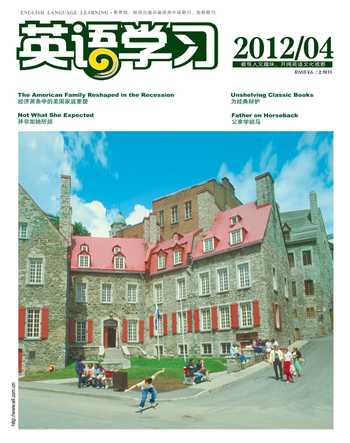我的父亲
Richard Pinkston
My Dad

The first memory I have of him—of anything, really—is his strength. It was in the late afternoon in a house under construction near ours. The unfinished wood floor had large, terrifying holes whose darkness I knew led to nowhere good. His powerful hands, then age 33, wrapped all the way around my tiny arms, then age 4, and easily swung me up to his shoulders to command all I surveyed.
The relationship between a son and his father changes over time. It may grow and flourish in mutual maturity.1 It may sour in dependence or independence.2 With many children living in single-parent homes today, it may not even exist.
But to a little boy right after World War II, a father seemed a god with strange strengths and uncanny powers enabling him to do and know things that no mortal could do or know.3 Amazing things, like putting a bicycle chain back on, just like that. Or building a hamster cage, or guiding a jigsaw so it forms the letter F.4
There were, of course, rules to learn. First came the handshake. None of those fishy little finger grips, but a good firm squeeze accompanied by an equally strong gaze into the others eyes.5 “The first thing anyone knows about you is your handshake,” he would say. And wed practice it each night on his return from work, the serious toddler6 running up to the giant father to shake hands again and again until it was firm enough.
As time passed, there were other rules to learn. “Always do your best.”“Do it now.” “Never lie!” And most importantly, “You can do whatever you have to do.” By my teens, he wasnt telling me what to do anymore, which was scary and heady at the same time.7 He provided perspective, not telling me what was around the great corner8 of life but letting me know there was a lot more than just today and the next, which I hadnt thought of.
One day, I realize now, there was a change. I wasnt trying to please him so much as I was trying to impress him. I never asked him to come to my football games. He had a high-pressure career, and it meant driving through most of Friday night. But for all the big games, when I looked over at the sideline, there was that familiar fedora.9 And by God10, did the opposing team captain ever get a firm handshake and a gaze he would remember.
Then, a school fact contradicted11 something he said. Impossible that he could be wrong, but there it was in the book. These accumulated over time, along with personal experiences, to buttress my own developing sense of values.12 And I could tell we had each taken our own, perfectly normal paths.
I began to see, too, his blind spots, his prejudices and his weaknesses.13 He seemed to need protection. I stopped asking his advice; the experiences he drew from no longer seemed relevant to the decisions I had to make. He volunteered advice for a while. But then, in more recent years, politics and issues gave way to talk of empty errands and, always, to ailments.14 From his bed, he showed me the many sores and scars on his misshapen body and all the bottles for medicine.15 “Sometimes,” he confided16, “I would just like to lie down and go to sleep and not wake up.”
After much thought and practice, one night last winter, I sat down by his bed and remembered for an instant those terrifying dark holes in another house 35 years before. I told my father how much I loved him. I described all the things people were doing for him. But, I said, he kept eating poorly, hiding in his room and violating17 the doctors orders. He wasnt doing his best. The decision was his.
He said he knew how hard my words had been to say and how proud he was of me. “I had the best teacher,” I said. “You can do whatever you have to do.” He smiled a little. And we shook hands, firmly, for the last time.
Several days later, at about 4 A.M., my mother heard Dad shuffling18 in their dark room. “I have some things I have to do,” he said. He paid a bundle of19 bills. He composed for my mother a long list of legal and financial what-to-dos “in case of emergency.” And he wrote me a note.
Then he walked back to his bed and laid himself down. He went to sleep, naturally. And he did not wake up. ?
1. flourish: 成长;mutual: 相互的,共同的;maturity: 成熟。
2. sour:(关系或态度)变坏;dependence: 依赖,依靠。
3. uncanny:离奇的,不可思议的;mortal: 普通人。
4. hamster: 仓鼠;jigsaw: 拼图玩具。
5. fishy: 可疑的,靠不住的;grip: 握力;squeeze: 紧捏,紧握;gaze:凝视。
6. toddler: 学步的儿童。
7. teens:(复数)青少年时期(13到19岁之间的阶段);heady: 使人飘飘然的,使人兴奋的。
8. around the great corner: 即将发生的。
9. sideline:(球场等的)界外区域,场外;fedora: 浅顶卷檐软呢帽。
10. by God:〈口〉老天作证(表示决心或惊讶时用来加强语气)。
11. contradict:(说法、真相等)与……抵触,与……矛盾。
12. accumulate: 积累;buttress: 支撑,加固。
13. blind spot: 不理解的事物,无知;prejudice: 偏见。
14. give way to: 被……取代;errand:差事,跑腿;ailment:疾病,不适。
15. sore:(因受伤或感染而致的)痛处,疮;scar: 疤;misshapen: 畸形的,扭曲变形的。
16. confide: 吐露(秘密、心事等)。
17. violate: 违反,违背。
18. shuffle: 拖着步子走。
19. a bundle of: 一束。

